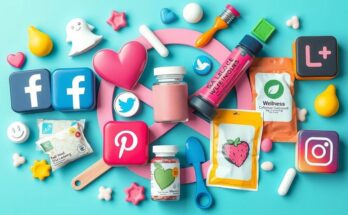The Rise of Belle Gibson: A Cautionary Tale
Belle Gibson exploited social media to construct a compelling narrative around her purported journey with cancer. According to reports, she built a lucrative empire by promoting faux natural cures, duping thousands through her blog, “The Whole Pantry,” where she claimed to forgo conventional treatments in favour of alternative methods.
A Digital Landscape of Misinformation
Gibson’s case signifies a troubling trend that extends beyond her story. The proliferation of short-form video platforms and rampant health misinformation highlights an urgent need for enhanced media literacy. As reported by experts, the digital world allows unverified health claims to flourish, demonstrating society’s collective vulnerability to misinformation.
Influencer Culture and Its Impact
Utilising Instagram, Gibson fostered a sense of authenticity, connecting with followers through relatable anecdotes and motivational content. She once stated, “Too many people over-edit themselves. It’s human to feel sick, to ask questions… Never refine yourself in a way which takes away your heart.” Such sentiments bolstered her image and solidified her parasocial relationships with her audience.
The Role of the Wellness Industry
The public grappled with accountability after Gibson’s exposure. Criticism ensued towards media outlets for amplifying her narrative, as well as the wellness industry, which many believe proliferates misinformation. Reports suggest the industry’s branding often targets women, despite its male-dominant origins, pointing to a complex interplay of gender within wellness marketing.
Misplaced Trust and Ongoing Issues
Despite her conviction and a hefty fine in 2017, many akin to Gibson continue to mislead audiences with cancer-related falsehoods. In today’s rushed, tech-driven environment, even minor influencers can reach vast audiences quickly. The continued prevalence of such misinformation underlines a society increasingly susceptible to deceitful health claims.
The Digital Dynamics of Fame
As seen with Gibson, fame’s dynamics have shifted dramatically due to algorithm-driven platforms. Today, random users can achieve viral status through engaging content, bringing with them the risk of spreading dangerous health advice without accountability. With pervasive unverified claims on social media, the lessons from Gibson’s saga resonate louder than ever, illuminating a complex battle against misinformation.
Belle Gibson leveraged social media to portray a deceptive cancer journey, creating a false narrative that drew thousands in. Despite her downfall, cancer misinformation remains rampant online, amplified by influencers. The urgent need for media literacy is evident as platforms thrive on unverified health claims. Gibson’s case highlights systemic flaws within the wellness sector and society’s vulnerability to false narratives.
The story of Belle Gibson encapsulates a larger issue of trust and credibility in the modern digital landscape. As deceptive narratives gain traction through unregulated online platforms, the role of critical thinking and media literacy becomes paramount. Without concerted efforts to scrutinise health claims and empower consumers, the cycle of misinformation is poised to persist, posing significant risks to public health.
Original Source: www.bizzbuzz.news



